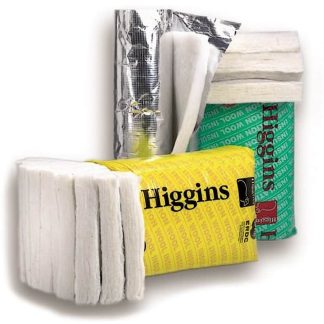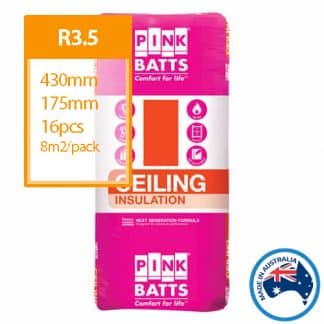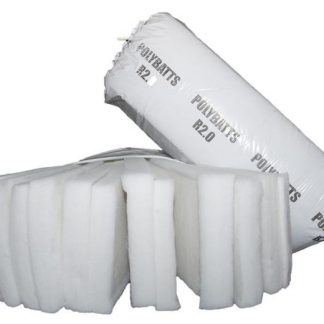R3.5 Ceiling Insulation
Showing all 3 results
-


R3.5 Higgins Insulation Polyester Ceiling Insulation Batts
From $20.31 p/m2 inc GST Buy Now! This product has multiple variants. The options may be chosen on the product page -


R3.5 Pink Batts Glasswool Ceiling Insulation
From $6.95 p/m2 inc GST Buy Now! This product has multiple variants. The options may be chosen on the product page -


R3.5 Polyester Solutions Polyester Insulation Ceiling Batts
From $13.36 p/m2 inc GST Buy Now! This product has multiple variants. The options may be chosen on the product page
Showing all 3 results
R3.5 Insulation
R3.5 insulation will help you save money on energy bills and reduce your reliance on heating and cooling. Leaving gaps will reduce the effectiveness of the insulation, meaning it will not achieve the set R-value. Compressing R3.5 insulation or exposing glasswool insulation batts to moisture will also reduce their thermal performance.
R3.5 Insulation – Choosing R-Value
R3.5 insulation is suitable in warmer climates such as Brisbane and northern New South Wales. To further reduce your energy savings, we recommend upgrading to a higher R-value. When choosing what R-value is best for your home, you need to take in consideration the building design, climate, energy costs, your budget and personal preference. If a comfortable, energy efficient home is a priority then you could consider opting for a higher R-value than what is on your energy report. The minimum insulation level required by the BCA for Melbourne, Canberra, Hobart, Sydney, Adelaide, Perth, Brisbane is an R-value of 4.1, however as 35% of heating and cooling, gains and losses occur through a homes ceiling it is recommended to install a higher R-value for greater energy savings and to further reduce your energy bills.
Glasswool or Polyester
Glasswool insulation as the name suggests is made from recycled glass material and is the common insulation material used in residential homes and commercial buildings world-wide. Glasswool fibres create air pockets that trap the air and prevents it from passing through. Also, glasswool is a poor conductor of hear, which makes this insulation material even more effective. In comparison, polyester insulation is made from recycled plastics such as drink bottles. It works in a similar way to glasswool by trapping air and it is naturally a hydrophobic material and is quick drying which means it is largely unaffected by moisture. Polyester is non-allergenic and safe for asthma sufferers. Glasswool and polyester are both great materials for insulation, however comparing brands and R-values can help you to find the right insulation for your home!
